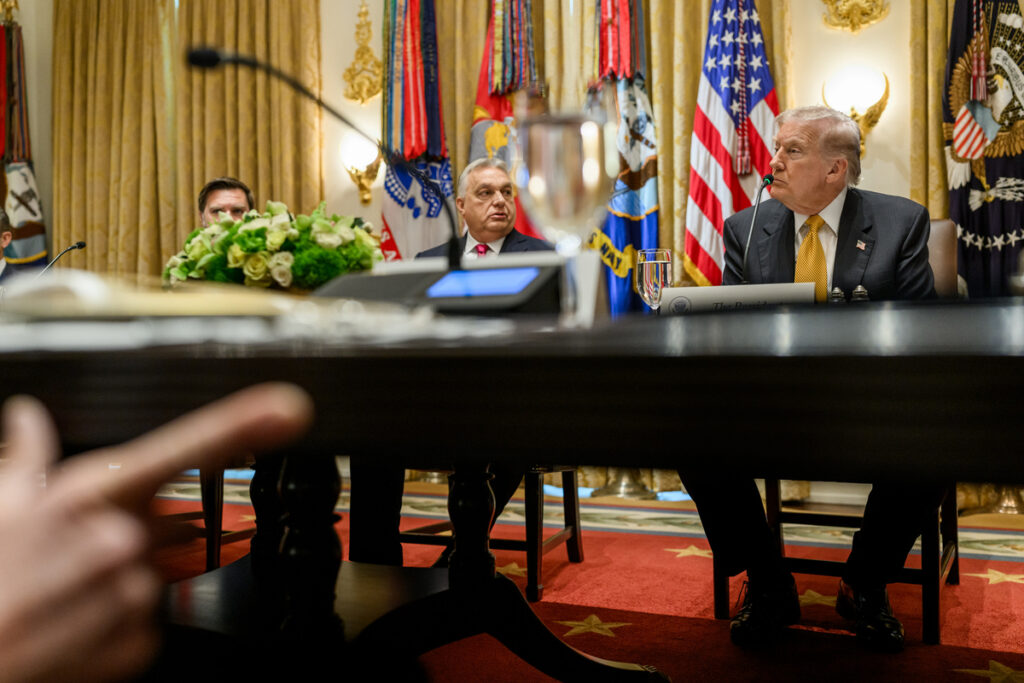
WASHINGTON, DC – The ink was barely dry on the apparent deal to shield Hungary from US sanctions targeting Russian oil and gas when the details began dissolving into a bitter dispute between Washington and Budapest. Just hours after Hungarian Prime Minister Viktor Orbán concluded a friendly White House meeting with US President Donald Trump, a crucial rift emerged over the longevity of the prized energy waiver.
The reprieve, which Orbán had personally lobbied for to protect his energy-starved economy, is now at the center of a transatlantic quarrel. According to sources, the waiver was initially perceived as a diplomatic victory for Orbán, yet its permanence is now under scrutiny.
Orbán’s Camp Declares Victory
Hungarian Foreign Minister Péter Szijjártó took to social media late Saturday to aggressively counter claims that the exemption was a temporary, one-year measure. “Fake news,” he declared, asserting that the exemption is permanent for an indefinite period. His statement was met with a rebuttal from the Trump administration.
A senior US official, speaking on condition of anonymity, dismissed Hungary’s version with a curt, two-word correction: “Nothing is indefinite.” This statement aligns with earlier reports indicating the exemption was for one year only, a timeline that undercuts Orbán’s narrative to his domestic audience ahead of a challenging election year.
Pipeline Problem
The dispute turns on the fate of Russia’s energy pipelines – Druzhba for oil and TurkStream for gas – which feed a Hungarian economy critically dependent on Moscow. According to IMF figures, Hungary in 2024 relied on Russia for roughly 86 percent of its oil and 74 percent of its gas.
“An immediate cutoff would send energy costs skyrocketing,” Budapest argues, potentially costing the landlocked nation more than 4 percent of its GDP and triggering unbearable price hikes for households and firms.
For Orbán, securing an indefinite waiver is both an economic and political imperative. It allows him to claim a major victory over pressure from Brussels, Kyiv, and NATO, and from earlier US sanctions imposed on Russian energy giants.
Warm Meeting, Cold Aftermath
The meeting between the two nationalist leaders was, by all accounts, warm. Trump publicly praised Orbán, hailing his hardline stance on immigration and even appearing sympathetic to Hungary’s geographic bind. “We’re looking at it,” Trump said. “It’s very different for him to get the oil and gas from other areas… they don’t have sea. They don’t have the ports.”
In return for the reprieve, a White House official noted that Budapest had committed to buying US liquefied natural gas (LNG) under contracts valued at roughly $600 million, aligning with Trump’s “America First” energy agenda.
Confusion, or Calculated Ambiguity?
The dueling narratives emerging from Washington and Budapest reveal a dangerous ambiguity at the heart of the deal. Szijjártó’s social media blitz – insisting, “Anyone who claims otherwise was not present at the negotiations” – is a direct challenge to the White House’s public statement.
It suggests that, in the Oval Office, an “indefinite” nod was given, which US aides are now attempting to roll back into a more conventional, term-limited diplomatic arrangement. The episode is vintage Trump: a deal struck on personal rapport with a foreign leader, immediately followed by a scramble among US officials to pin down the concrete terms of the agreement.
It’s also classic Orbán: seizing maximum political advantage from a friendly meeting, then using the claim of “fake news” to shut down any inconvenient details that diminish his diplomatic triumph.
Allies Watching Nervously
For Washington’s foreign policy establishment, the short-term waiver is a damage-control measure – preventing an all-out rupture with an important, if often contrarian, NATO ally while maintaining leverage. For Kyiv and its allies in the EU, however, the dispute itself is a sign of instability.
The question now is whether the “indefinite” claim is a simple communication breakdown, or if Orbán is banking on the political reality that reversing a waiver once granted will be difficult, especially with an election looming and a powerful ally in the White House.
The immediate casualty is clarity – replaced by a transatlantic shouting match over the single most important detail: how long the waiver will last. As the situation unfolds, both sides are left to navigate the murky waters of international diplomacy, with potential implications for energy markets and geopolitical alliances.







